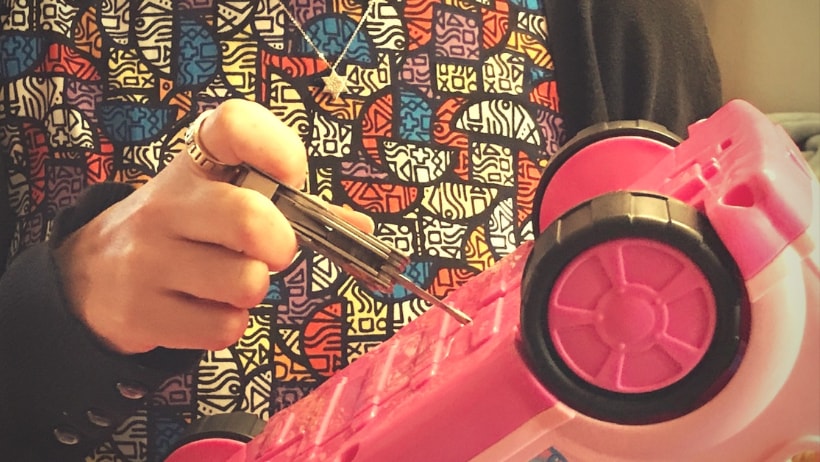We all do things out of self-preservation. It’s the first law of nature, says Samuel Butler. Self-preservation as a parent means that sometimes you turn off the sound on toys or take out batteries so you don’t lose your mind over that one song that plays over and over again. Other acts of self-preservation for the sake of sanity might be avoiding Facebook during political high tide, or staying away from the mall around Christmas (or perhaps anytime after Labor Day, since that’s apparently the start of the season now). Been there, done those.

Granted, not all self-preservation is as benign and banal as these examples; sometimes it’s literal. We have to find ways to prevent ourselves from getting into dangerous situations, and that can be a matter of survival.
We see a prime example of the self-preservation mode in this week’s parshah, Lech Lecha. Parshat Lech Lecha brings us finally into the narrative of Abraham and Sarah and the beginning of the rest of our history as the Jewish people. The text begins with Avram and Sarai leaving their land, the land that they knew and felt comfortable in, to go to Egypt and follow God’s command. The text continues with their ongoing problems in Egypt and ends with their name changes from Avram to Avraham and Sarai to Sarah.
Upon their arrival in the new land, Abraham fears for their lives. He’s afraid his beautiful wife Sarah might be taken from him and that he might even be killed in the process. Like any of us might do, he shifts into self-preservation mode and tells Sarah to lie about her identity. She is to be his sister, not his wife. Unfortunately the plan ends up backfiring, but there is Abraham, our forefather and first leader of the monotheistic movement, and the first words he utters in the Torah are a lie for self-preservation.
We teach our children that lying is never OK, but there are situations that might force us to walk that line when it comes to the lives of loved ones. Of course taking the batteries out of a toy or hiding a book you’ve read a thousand times are certainly not actions taken in life and death situations. On the other hand, they do illustrate the occasional necessity of sacrificing a little emet bayit (truth in the home) for the sake of shalom bayit (peace in the home).
-Rabbi Eve Posen
Source: Self Preservation – Parshat Lech Lecha 5778 – Rabbi Eve Posen



